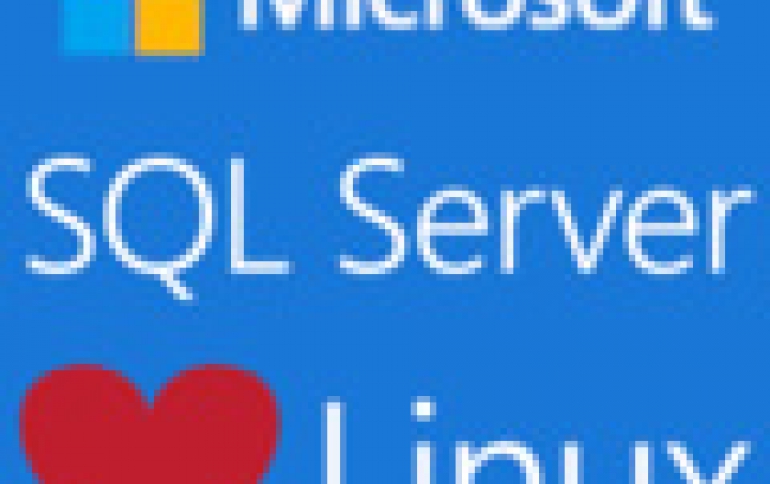
SQL Server Coming On Linux
Microsoft plans to bring SQL Server to Linux by 2017, in a move that takes aim at a market long dominated by Oracle. The company is bringing the core relational database capabilities to preview today, and is targeting availability in mid-2017.
SQL Server on Linux will provide Microsoft's customers with even more flexibility in their data solution.
"SQL Server’s proven enterprise experience and capabilities offer a valuable asset to enterprise Linux customers around the world," said Paul Cormier, President, Products and Technologies, Red Hat.
Microsoft's more open strategy has become a hallmark of Chief Executive Officer Satya Nadella since he took over in 2014.
Just last week, the company announced an agreement to acquire Xamarin. Recently, Microsoft also announced Microsoft R Server, its technologies based on the acquisition of Revolution Analytics, with support for Hadoop and Teradata.
Microsoft’s SQL Server business ranks behind No. 1 Oracle, which has more than 40 percent market share in database software and works with Linux.
Microsoft has 21.5 percent of the market, pushing IBM from second to third place in 2013. SAP SE also competes in the area, according to Gartner.
This Thursday at Microsoft's Data Driven event in New York, the company will also kick off a wave of launch activities for SQL Server 2016 with general availability later this year. SQL Server 2016 delivers:
- Security encryption capabilities that enable data to always be encrypted at rest, in motion and in-memory
- In-memory database support for every workload with performance increases up to 30-100x
- Data Warehousing performance with the #1, #2 and #3 TPC-H 10 Terabyte benchmarks for non-clustered performance, and the #1 SAP
- SD Two-Tier performance benchmark on windows
- Business Intelligence for every employee on every device – including new mobile BI support for iOS, Android and Windows Phone devices
- Advanced analytics using the new R support
- Cloud capabilities that enable Microsoft's customers to deploy hybrid architectures that partition data workloads across on-premises and cloud based systems to save costs and increase agility





















